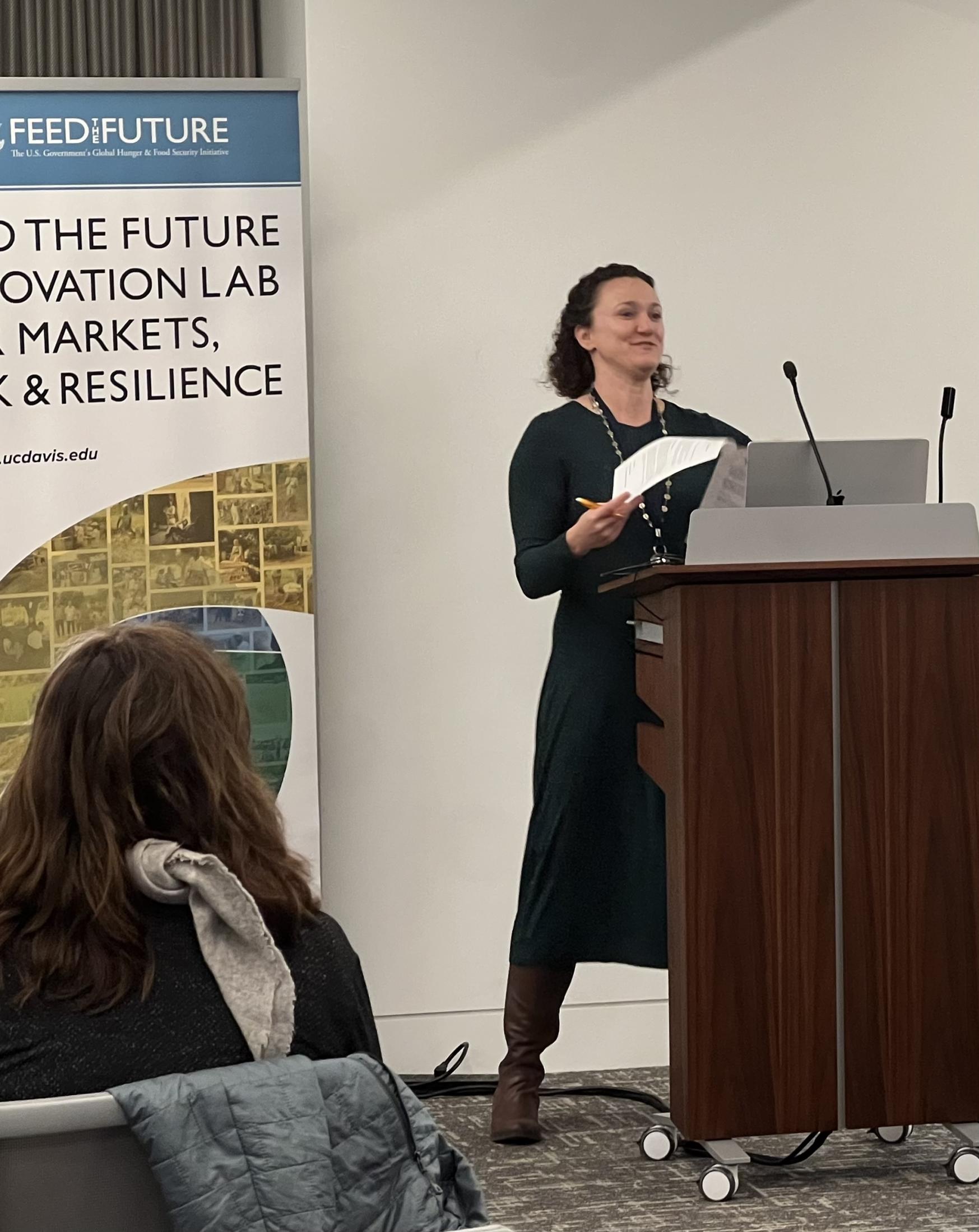
Behavioral Economics Forum “Nudges” New Thinking
On February 27-28, 2024, the MRR Innovation Lab hosted the Behavioral Economics Forum: Lessons to Strengthen Development Programming and Policy. Local participants convened at USAID offices in Washington, D.C., joined by over 120 online participants from around the world.
USAID speakers included Deputy Assistant Administrators for the Bureau for Resilience, Environment and Food Security, Mia Beers and Ann Vaughan, as well as Chief Economist, Dean Karlan.
MRR Innovation Lab director, Michael Carter introduced behavioral economics as a sub-discipline that recognizes that people often do not make decisions in ways that standard economic models assume. He outlined behavioral economics considerations to be covered in the forum, including: how people act in the face of risk, how people think about the future, how preferences are tied to the constraints we face, and how psychosocial factor impact people’s perceptions of their own capabilities.
Across three thematic panels, eight economists and one psychologist presented their research on behavioral economics pertaining to poverty alleviation in developing countries.
The Psychosocial Dynamics of Poverty
Interactions between poverty and psychosocial factors were at the forefront of discussions. Economist Rachid Laajaj described how the stress of poverty reduces people’s cognitive bandwidth for making decisions and thinking about the future. He summarized, “Being poor makes you think less about the future, and thinking less about the future makes you save and invest less and creates a negative, vicious cycle.”
Psychologist Catherine Thomas described how psychosocial constraints, left unaddressed, can reduce the effectiveness of poverty reduction programs. She also presented opportunity, noting, “Even addressing those psychosocial factors alone—some evidence suggests that can fuel economic mobility more broadly.” Thomas went on to present three approaches that have evidence of increasing aspirations and agency in aid programs: 1. Empowering, inclusive narratives of aid; 2. Role models and visualization exercises; and 3. Life skills trainings in goal setting.

Ann Vaughan
Using Nudges: With Great Power Comes Great Responsibility
Multiple speakers discussed using “nudges” to influence people’s decisions to overcome behavioral factors that are limiting improvements in welfare.
Yale economist Lauren Bergquist described how pairing a lockbox “nudge” with access to credit increased the financial benefits farmers experienced with loans. Results suggest that a lockbox helped farmers overcome challenges with mental accounting and earmarking funds for future use, while reducing social expectations around sharing a large sum of cash. Bergquist’s study found that, while the loan increased farmers’ revenues, those who also received the lockbox nudge demonstrated smoother consumption and increased investments in the future.
Reflecting on the power of addressing behavioral factors to maximize intervention impact, Bergquist remarked, “I view these behavioral nudges as sort of turbo chargers.”
Additional speakers agreed that nudges are powerful, though some focused on cautionary messages around their misuse. Economists Glenn Harrison and Karlijn Morsink showed that a variety of nudges were effective in increasing decisions to purchase insurance—overcoming a behavioral challenge around complexity and limited cognitive bandwidth—but that effectiveness also applied to uptake of insurance products that made people worse off. They underscored that using behavioral nudges without evidence that the encouraged product or behavior will make the nudge-receivers better off violates the Do No Harm principle.
What Comes Next
Deputy Assistant Administrator, Ann Vaughan included in her closing remarks, “A challenge to my USAID friends and colleagues: What are we going to do and incorporate this into our programs going forward?”
After the forum concluded, the MRR Lab met with USAID staff to discuss learning products that could support global USAID staff—and other development organizations—to put learnings shared at the event into practice. These products are in production at the time of this article.
In the meantime, the MRR Lab has posted extensive resources, including related academic papers, session recordings, slides, and offline Q&A on the forum event page.
